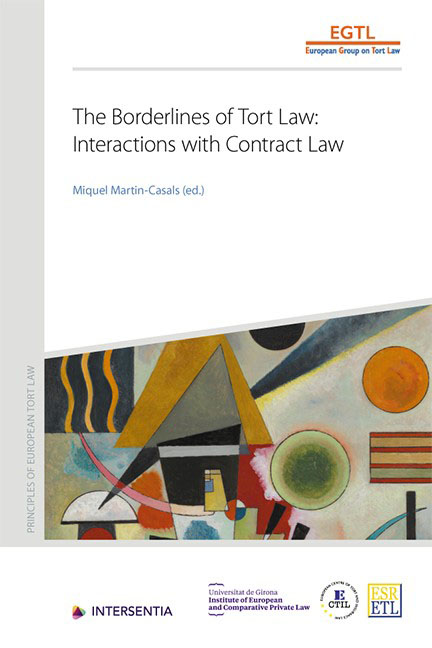Book contents
Czech Republic
Published online by Cambridge University Press: 15 November 2019
Summary
QUESTIONS
TRACING THE BORDERLINES
A. DISTINCTION BETWEEN TORT AND CONTRACT
1) Liability Regime Until 2013
The regulation of compensation for damage was set forth in Act 40/1964 Coll, the Civil Code, until the end of 2013, based on §420, which stipulated a general clause defining the conditions for liability of legal and natural persons in delict. §420 of the Civil Code provided that every person is liable for damage which he causes by breaching a legal obligation. This means that, under this condition, the distinction between liability based on breach of contract and liability based on delicts could not be determined.
The civil law theory required the following elements for liability to be established: (i) breach of a legal duty or an event qualified by the law; (ii) damage; and (iii) causation between the breach and the harm consequently inflicted. In most cases of liability, fault was required, either in the form of negligence or intention. This was the case for matters which were not deemed cases of strict liability.
The provisions relating to strict liability are located in §§420a – 437 of the Civil Code (with the exception of §§422 – 424). These are cases which do not require fault to be established. For the fulfilment of the facts of a particular case, only three conditions must be met: a legally specified event causing damage; damage; and causation between the incident and the harm incurred. A number of such cases related directly to breach of contract as they comprised liability for worn items, protected or handed-over items, as well as liability for damage caused by used items.
2) Liability Regime Since 2014
Unlike the former Civil Code, which was based on a general clause on damages, Act no 89/2012 Coll, the new Civil Code (CC 2012), establishes a new basis for liability based on breached norms, ie it differentiates between contractual and non-contractual damages.
The basic difference between these two types of liability is that while tortious liability is based on fault, liability for breach of contract is qualified as strict liability, where the potential wrongdoer can exempt himself if he proves that he was temporarily or permanently prevented from the fulfilment of his obligation under the contract by an extraordinary, unpredictable burden that occurred independently of his will.
- Type
- Chapter
- Information
- The Borderlines of Tort LawInteractions with Contract Law, pp. 45 - 68Publisher: IntersentiaPrint publication year: 2019

